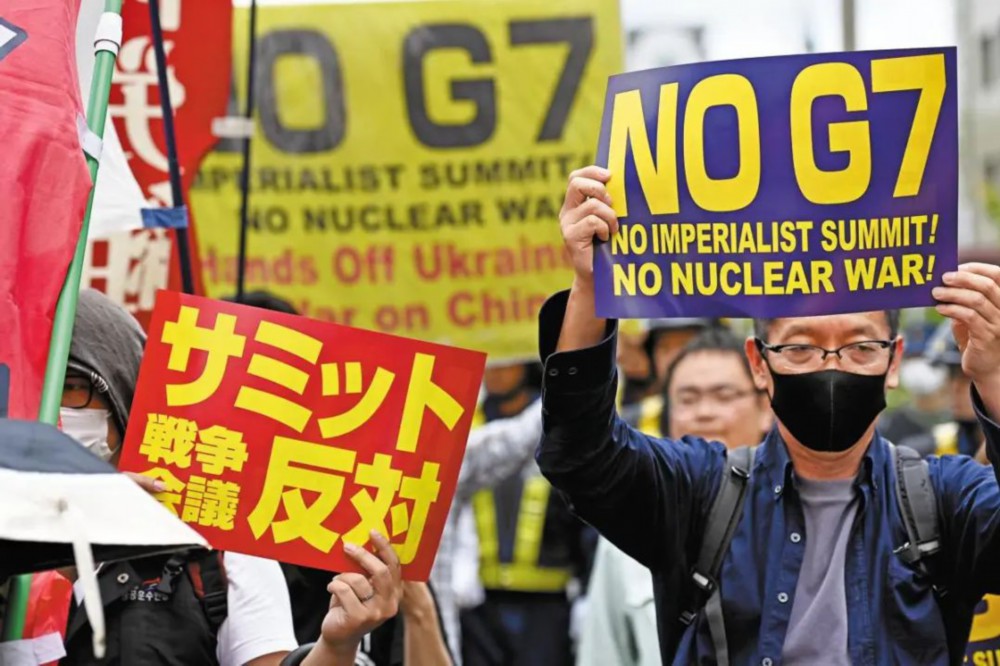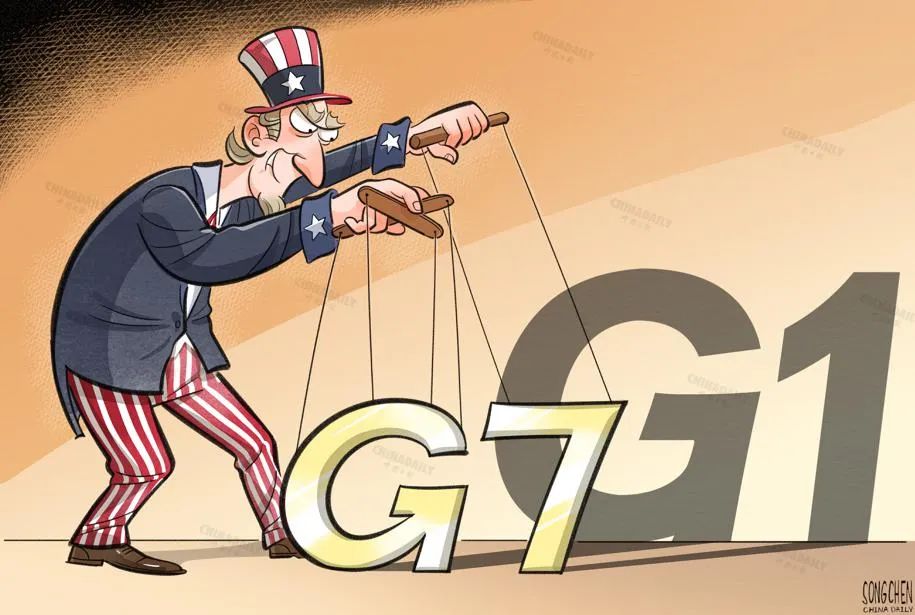Australian expert: The G7 Hiroshima Summit talks about "order" and thinks about "hegemony".
guide reading
This year’s G7 Summit was held in Hiroshima, Japan from May 19th to 21st. Although the G7 claimed that this summit was dedicated to maintaining the international order based on international law and strengthening its ties with the global south, the G7 countries led by the United States ignored China’s right to speak internationally and imposed sanctions on Russian and other countries by launching economic wars. This runs counter to the proposal put forward by G7 in the agenda of the summit, and cannot conceal its real purpose of maintaining hegemonic order.

Author: Daryl Guppy
(Daryl Guppy)
Australian representative of the silk road international chamber of commerce
Expert in technical analysis of international financial markets
This year’s Group of Seven (G7) Summit was held in Hiroshima, Japan, and the top agenda was still to maintain hegemonic order. Hiroshima was the first city to be destroyed by a nuclear weapon attack, and this meeting place was ironically combined with the changing focus of G7. The G7 was established mainly to promote common macroeconomic initiatives to deal with contemporary economic problems, but now it is poised to launch an economic war.
According to the official agenda, the purpose of the G7 Summit is to show the firm determination of the G7 to maintain the international order based on international law and resolutely oppose any attempt to unilaterally change the status quo. However, the G7 member countries neither accept the fact that the current economic situation has changed, nor admit that it can no longer prevent China, as the second largest economy, from having more say in the future evolution of the global order. How to adapt to this change and develop a multipolar system peacefully is a problem worthy of G7′ s attention.

Image source: China Daily
The agenda of the meeting includes showing G7′ s contribution to issues of concern to countries in the south of the world and strengthening ties with the latter. G7 claims to discuss the current development issues with the concepts of "human security" and "people-oriented". However, when the Chairman of the Supreme Leader put forward the global development initiative at the United Nations in 2021, it did not get the support of G7. In contrast, the Shanghai Cooperation Organization took the lead in expressing its support for this initiative, without imposing any ideological hegemony, and the agenda of this G7 summit is only a mockery of the SCO.
The agenda of the G7 Summit also reiterated the need to strengthen "free and open cooperation between China and Taiwan". However, the strong reaction of G7 member countries to the recent naval exercise in fully exposed their true purpose and double-standard nature: it seems unnatural for China to use international waters freely and openly, but the aggressive "freedom of navigation" exercise of G7 member countries is reasonable.
China is the second largest economy in the world, contributing more than 18% to the world economic growth, while the G7 summit excluded China. The seriousness and importance of such a meeting are hardly convincing. This isolation policy makes people wonder whether the G7 really reflects the global consensus based on the rule order.

Image source: China Daily
But in any case, this year’s G7 summit is still of great significance. The reason is that Japan, as the host of the summit, is trying to follow its example in World War I and transform the G7 into a military bloc similar to NATO by forming an alliance with the (former) European powers. This ambition of Japan is obvious, not only in its key agenda, but also in its invitation to eight non-G7 member countries, many of which want to restrict the development of China.
G7 has become an anti-China alliance, which weakens its legitimacy, but this does not mean that the voice of G7 can be ignored. If we want to correctly evaluate the series of decisions announced by the G7 Summit, we must treat it as a hegemonic tool, not as a partner.

Image source: China Daily
The United States proposes to expand sanctions against Russia and adopt a radical strategy to maintain the so-called "rules-based international order." Sanctions are a common weapon of the United States, which can cause large-scale economic damage and bring profound disasters to the people. Countries in the southern part of the world are very worried that the United States may continue to hold high the stick of sanctions, which will inevitably hinder the economic prosperity and development of the southern part of the world. This proposal is also quite different from the policy of "strengthening ties with the global south" advocated by G7.
Although the influence of the G7 summit is not as good as that of more representative international organizations such as the Shanghai Cooperation Organization, it cannot be ignored. The afterglow of G7 may continue to exist for a long time, but the real global decision-making center has begun to shift to trade mechanisms such as RCEP and multilateral political organizations such as ASEAN, which all recognize China’s status and are supported by China.
The United States weaponized the dollar-denominated trade settlement system, which just promoted the "de-dollarization" of international trade.
As can be seen from the invitation list of G7 observer countries, G7 also recognizes the importance of inclusiveness — — This was a good thing, but when the G7 summit excluded China, it became a desperate gamble. The rules that most countries in the world want are formulated in a multipolar or multilateral context, not by the United States and its G7 allies. China has always advocated tolerance and cooperation, while the G7 has just done the opposite.

Image source: China Daily
The original title of this article is "Group of Seven Conducting Economic Warfare".
Editor | Song Ping Luan Ruiying
Edit | Zhao Zhang
Interns Alleycat, Li Jingwei, Qin Ke and Qiao Jingwen also contributed.